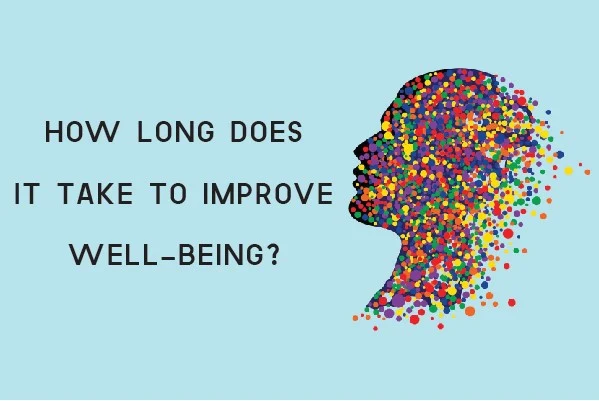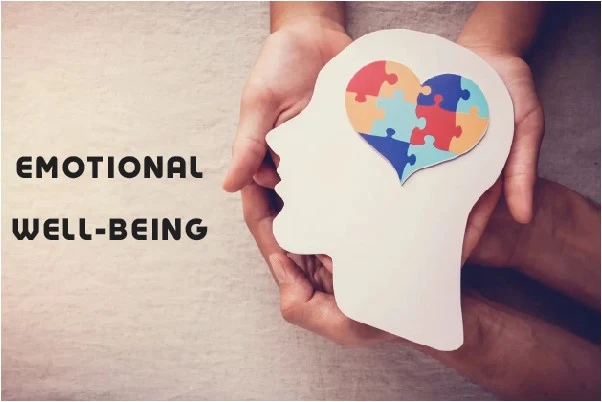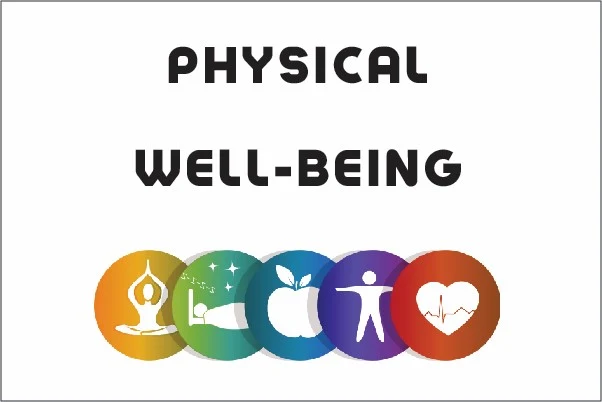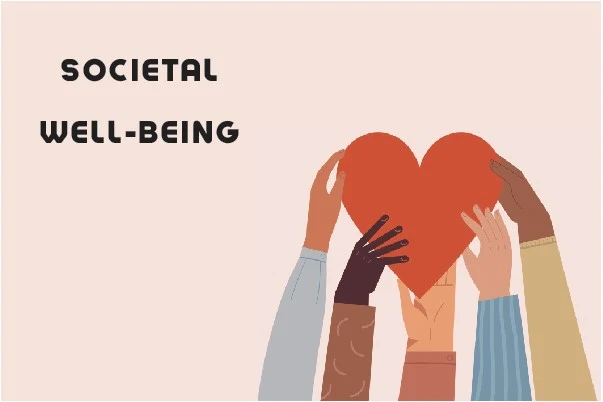
WHAT IS WELL-BEING?
There is a sense of well-being when an individual feels healthy,
happy, and prosperous. The definition of happiness includes a lot more than
simply being mentally healthy, feeling satisfied with your life, being able to
deal with stress, and having a sense of meaning or purpose in life. More
generally, well-being is simply feeling good about yourself.
Almost everyone seeks well-being because it encompasses many positive elements – feeling happy, healthy, socially integrated, and useful. Unfortunately, well-being appears to decline, and France is no exception. And it can be not easy to improve your well-being without knowing what to do and how to do it.
CAN YOU IMPROVE YOUR WELL-BEING?
Improving your well-being is simple; you can develop many
skills. But improving your well-being isn't always easy: determining which
aspects of well-being are most important to you and knowing how to establish
well-being skills usually requires additional help.

HOW LONG DOES IT TAKE TO IMPROVE WELL-BEING?
When people begin to systematically use scientific techniques to
improve their well-being or emotional well-being, they begin to feel better
fairly quickly. But you have to stick to it. If you feel better after five
weeks, you can't stop there.
For what? Well, you probably already know that if you stop
eating healthy and
start eating junk food again,
you'll return to where you started. As it pertains to different types of
well-being, the same is true. If you want to maintain the benefits you get,
you'll need to continue engaging in wellness-promoting practices to strengthen
your skills. As a person struggling to achieve long-term goals, it is crucial
to have strategies and tools that can help you stay on track - for example, a
happiness and well-being plan, or an activity that you can use throughout your
life to enhance your wellbeing.
Here's what you need to know.
WHERE DOES WELL-BEING COME FROM?
There are a lot of aspects of your well-being that you are able
to control - such as your thoughts, actions, and experiences. For example, we
tend to have greater emotional well-being when considering positive reviews.
When we have meaningful relationships, we tend to have better social
well-being. And when we lose or hate our job, we tend to have lower well-being
at work. These examples show how broad well-being is and how many different
well-being types exist.
Because wellness is such a broad experience, we will break it
down into different types.
5 MAIN TYPES OF WELL-BEING
To build your overall well-being, you must ensure all these types work to some extent.
Think about it this way: Imagine you are in a car. Your engine is running great,
and your transmission is working great, too, but your brakes aren't working.
Because your brakes don't work, the quality of the engine doesn't matter; you
will always have difficulty moving on with your life.
The same goes for your well-being. If everything is going well
in your life, but you are feeling lonely or eating poorly, other aspects of
your life will be affected, and you will probably not feel as well as you would
like.

Emotional well-being
The ability to
practice stress management and relaxation techniques, be resilient, strengthen self-love,
and generate the emotions that lead to good feelings.
Developing an emotional well-being involves learning skills such
as positivity, emotion regulation, and mindfulness, for example, in order to
enhance our emotional well-being. It is often necessary for us to develop
several of these skills to deal with the wide variety of situations we face
throughout our lives. When we have developed these emotional well-being skills,
we can better cope with stress, manage our emotions in the face of challenges,
and recover quickly from disappointments. Therefore, we are able to enjoy our
lives a little more, be happier, and achieve our goals more effectively as a
result of our efforts.
Here are some of the skills that research shows contribute to
emotional well-being:
- Happiness Skills
- Mindfulness skills
- Positive thought
- Resilience skills

Physical well-being
A healthy lifestyle and good exercise habits can improve the
functioning of the body as well as help you live a happier and healthier
lifestyle.
To develop our physical well-being, we need to know what a balanced diet and workout routine look
like to implement effective strategies in our daily lives. When we improve our
physical well-being, we feel better, but our new health can also help prevent
many diseases, heal our gut, boost our emotional well-being, and limit the
number of health problems we face.
Here are some of the things that can help you improve your
physical well-being:
- Eat to be healthy
- Detoxify your body
- Correct nutritional deficiencies
- Remove plastic from your home
Unfortunately, it is possible to eat healthy and still be unhealthy. We may accidentally leave out important foods or nutrients. Or we may overload ourselves with toxins from plastic or processed foods. As a result, we may need to eat additional foods, detoxify our bodies, or prevent these toxins from entering our bodies again. That's why it's essential to learn about health to make the right changes that lead to long-term health and well-being.
Social well-being
It is important to maintain meaningful relationships with
others, communicate with others, and maintain a support network in order to
overcome loneliness.
To develop social well-being, we must strengthen our social
skills, such as gratitude, kindness, and communication. We feel less lonely,
angry, and disconnected when we have social skills, which helps us interact
positively with others. When we have developed our social well-being, we think
more usefully connected to others.
Here are some of the skills that research shows contribute to
better social well-being:
- Practice gratitude (for example,
with a gratitude journal)
- Create meaningful social
connections
- Managing your relationship with
technology
It is important to know that developing social well-being is one
of the best ways to create emotional well-being. Having a sense of social
connection also makes us feel better, experiences more positive emotions, and
can cope better with challenges when we are connected to other people. This is
why it is essential to develop our social well-being.
Well, being at work
A person who is able to pursue his or her interests, values, and
life purpose is able to find meaning, be happy, and enrich themselves
professionally as well.
To develop our well-being at work, we need to acquire skills
that help us pursue what matters to us. This can be about developing
professional skills that help us achieve our life goals and manifest things,
but also about living our values and maintaining a work-life balance. These
skills allow us to enjoy our work more and help us stay focused, motivated, and
succeed at work. When we have developed well-being at work, our work, and
therefore every day, has more meaning.
Here are some of the key skills you need to ensure well-being at
work:
- Maintain work-life balance
- Find a purpose
As we spend a lot of time at work, developing well-being at work
greatly impacts our overall well-being.

Societal well-being
Being able to participate actively in a vibrant community,
culture, and environment, where both individuals and values thrive.
To develop societal well-being, we must acquire skills that make
us feel interconnected with all things. Our environment, our local communities,
as well as creating a culture that is compassionate, fair, and kind in our
society, requires us to know how to support these factors. These skills make us
feel part of a thriving community that helps each other and the world. When we
cultivate societal well-being, we feel part of something bigger than ourselves
and live happily.
Although each of us represents only a small part of society, we
all need to be together to create societal well-being. If each of us did an act
of kindness to another person in our community, we would live in a very caring
community. Or if we all decide to recycle, we suddenly create a world with much
less waste. To live in a healthy society, we, too, must contribute to creating
a healthy community.
Here are some of the skills you can acquire to improve the
well-being of society:
- Live your values
- Create a plastic-free home
- Have a positive impact on the
lives of others
- Kindness
WHO BENEFITS MOST FROM WELL-BEING DEVELOPMENT?
Not everyone gets the same benefits from developing their
well-being. For example, plenty of research suggests that the more motivated
you are to establish well-being skills, the greater the impact. This is not surprising.
Still, other research shows that having a growth mindset or
positive attitude can help you develop your other wellness skills more easily.
In order to increase different types of well-being more easily, I encourage
people to work on developing these skills first - then, it may be easier for
you to increase the various types of well-being as well.
Additionally, developing well-being skills may be most beneficial for struggling people, particularly if they have recently experienced something stressful. Creating well-being during this time may be more difficult, but the impact may be greater as there is more opportunity for improvement.




.png)
0 Comments